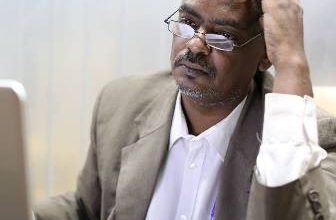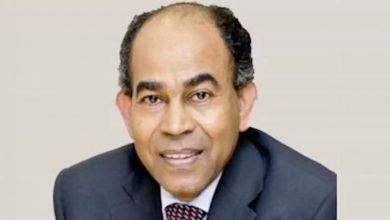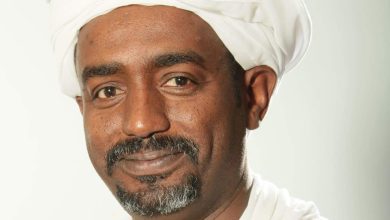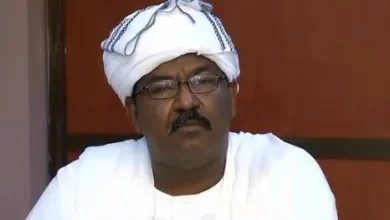(The Garden of Truth… and the Path of the Way)

Dr. Shams Al-Din Younis
In 1979, while we were still students at Atbara Secondary School, we were passionate about reading. We weren’t distracted by WhatsApp, TikTok, or Google for information. We would read wherever a scrap of paper appeared… starting with Al-Sir Al-Sayed’s newspaper (under the tree), where he discussed all kinds of issues: student matters, jurisprudential ones, or ideological topics… we even read Mahmoud Darwish from our teacher Osman Al-Sayed’s library. Speaking of Osman Al-Sayed… this wonderful teacher who made us love history and its philosophy… he would always begin his lessons by discussing his publication (The 25th Hour Views), which was full of poetry, philosophy, wisdom, and stories. We read it all, and in one of its issues, I was taken by the “Story of the Elephant and the Six Blind Men”… in some versions, it’s three… others say five… guessing in the dark… The story originates from the Buddhist text Uranana from the middle of the first century BC. This is an essential side note… to clarify the context of our story from the late 1970s. We were in the city of Atbara, just introduced to television, which started broadcasting in the mid-1970s. Since the railway didn’t start distributing televisions to its employees, we didn’t have one, as my family wasn’t affiliated with that institution… we gathered around the TV at the Youth Center in Al-Muraba’at… and enjoyed watching “In the Sanctuary of Arts and Literature” by Mr. Babakr Al-Siddiq, which aired from Wad Medani… and the “Varieties” program by Mutawakel Kamel. In the “Varieties” show, there was a competition segment… called “The Most Beautiful Thing I Read”… I turned to Osman Al-Sayed’s publication The 25th Hour Views to extract the “Story of the Six Blind Men and the Elephant” and submitted it to the competition… by good fortune, I won the first prize, and I heard my name and the story on TV. The prize was ten pounds… you’d travel to Khartoum to collect it from the television buildings… (The Blind Men and the Elephant) gave me the opportunity to enter the TV buildings, something I never imagined having any connection to that device around which we would gather, enjoying its programs… and that’s another story, not the one we are dealing with here. It shaped our consciousness, and the creative energy in us erupted and manifested in the meanings of things… far from politics… and close to drama. And Mr. Awad Rahma (Awad Funoon) taught us in the arts class… “Draw what you see, not what you know”… “And don’t wear glasses and look through them”… so from then, we realized that the angle of viewing something determines its truth. So, what does the story of “The Blind Men and the Elephant” tell us?
It is said that there were six blind men who learned that a huge elephant would be brought to the city, so they went to the ruler and asked to touch the elephant, as they had always heard about it, but their imagination couldn’t conceive of the elephant. On the day of the event, the ruler allowed the blind men to touch and get to know the elephant… the first touched the elephant’s tail and said, “This elephant is a rope.”
The second touched the elephant’s body and said, “This elephant is a great wall.”
The third touched the elephant’s tusk and said, “This elephant is a spear.”
The fourth touched the elephant’s trunk and declared, “This elephant is a thick, non-poisonous snake.”
As for the fifth, he mocked them all and said the elephant was a fan, because he touched its ear. The sixth laughed and sarcastically said, “It seems you touched something other than the elephant,” and he touched the elephant’s leg, smiling and saying, “This elephant is nothing but the trunk of a tree.”
Each one of them was truthful in his description, as they each touched part of the truth… but they didn’t pause to understand the complete truth. For war is not the same when it happens far from us… it is not the same when experienced by someone living through its horrors… it is not the same to a child playing with toys… I apologize for digressing… My child asked his mother, “Samaah, when will the war end?” So that we could go back to our home to get my bicycle which we had left there. She was speechless… for war is not the same to a soldier in the middle of the battle… it is not the same to a politician speaking about it in a rally…
There are no longer any fixed, absolute truths… all truths are like those perceived by the blind…
Oh, how terrible… I wish I hadn’t won that prize… perhaps I would have silenced the war… and may God have mercy on the Yemeni poet Al-Bardouni, who, though blind, had vision, when he said:
“The ignorance of what’s happening is terrible, and even worse is when you know…”
And he contemplated the truth until it opened to him.



